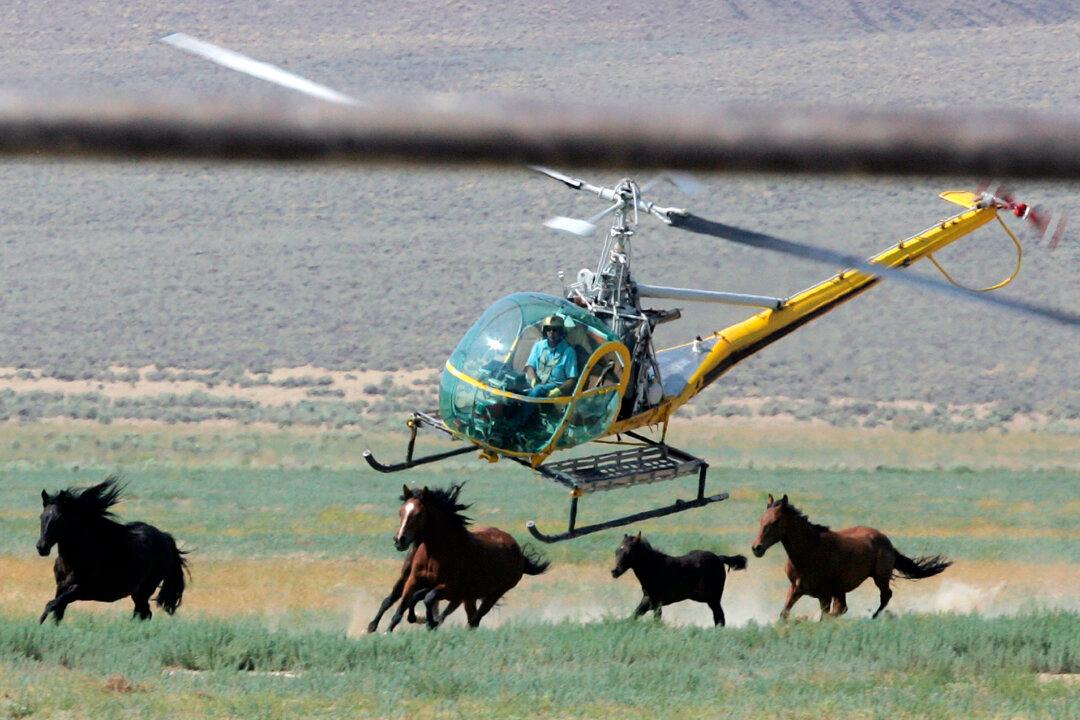Wyoming state lawmakers are calling for the return of horse slaughterhouses, saying that inefficient federal management has allowed growing wild mustang herds to render the already resource-scarce habitat unusable for humans and other wildlife.
Scientists make a distinction between feral domesticated horses and truly wild horses, whose ancestors have never been domesticated at any point in time. Although horses that roam the American West today are descendants of escaped or abandoned horses brought to the New World by Spanish conquistadors in the 16th century and European settlers who came later, this article will refer to these animals as “wild horses,” as this is what people commonly call them.





